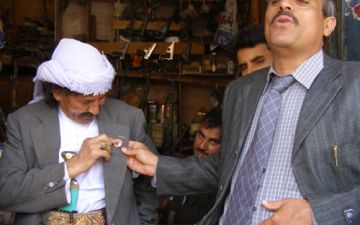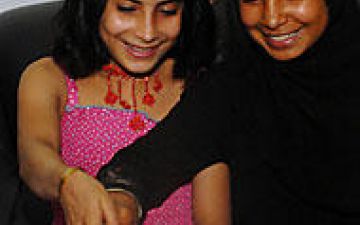Iraq: The Promise of Freedom
This video was removed due to security concern.
THE PROMISE OF FREEDOM is a documentary feature that traces the intersecting stories of U.S.-affiliated Iraqi refugees and the Americans attempting to aid them. The film exposes the long-term human consequences of war and raises questions about the moral responsibility we have to those Iraqis who lost everything because they believed in America most.
Aired the week of Friday, August 29th, 2008.

